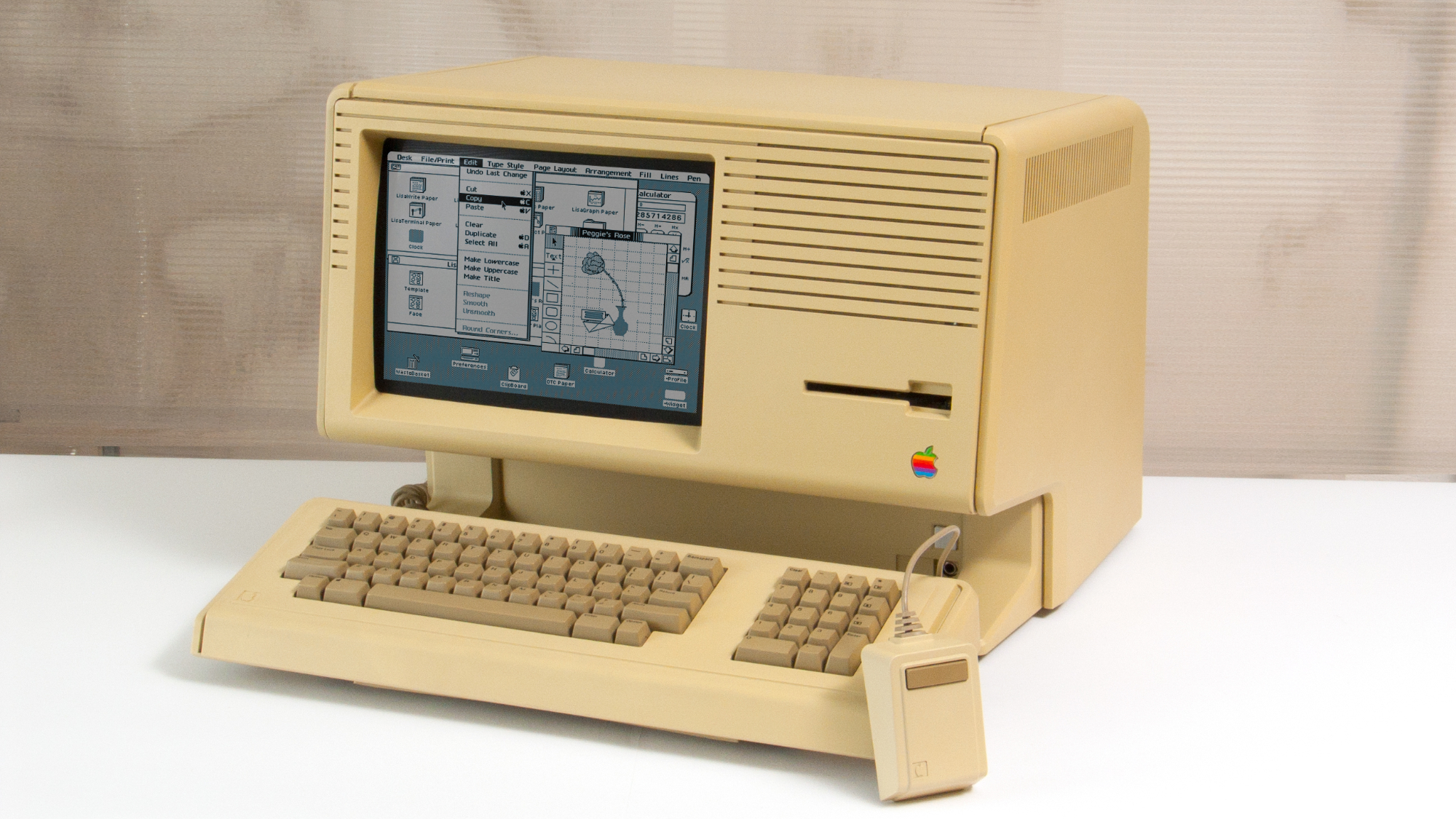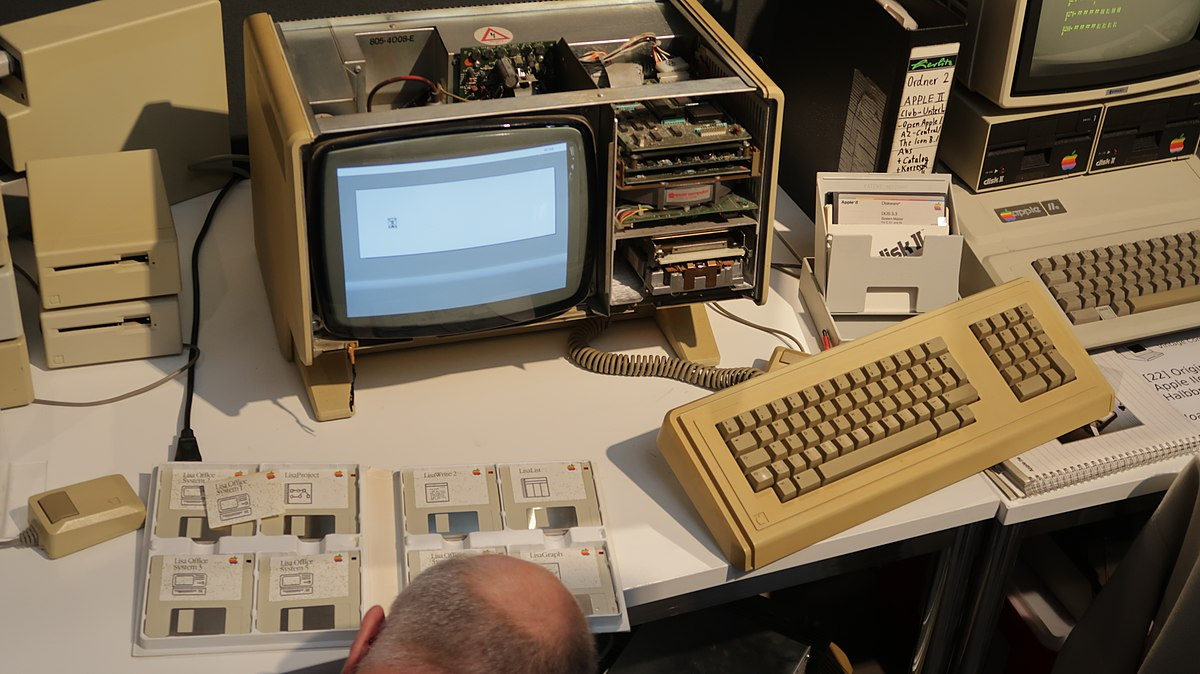You can now download the source code for Apple's most influential failure
Celebrate forty years of the Lisa's influential graphical interface.

The Apple Lisa was the home computer that introduced a graphical user interface (GUI) to the masses. Without this pivotal step in computing, we might've seen a very different desktop emerge. Maybe we wouldn't have seen a desktop at all. The whole concept of windows, files, folders, and navigating them via a mouse input was something the Lisa brought to bear for average computer users, at a $50 million R&D expense to Apple.
Admittedly, Apple wasn't the first to integrate a GUI into a functional machine. That was Xerox's breakthrough to claim, and it first made an appearance as the Xerox Star operating system and accompanying computers. However, it was Apple's machine that brought this concept to the public eye in a somewhat more affordable machine. Steve Jobs and a delegation of Apple engineers visited Xerox's PARC R&D campus and famously caught wind of this new-fangled GUI idea that the company was working on, and Jobs decided that was what he wanted for the Lisa project Apple was working on at the time.
And so Apple went about making its own GUI, eventually introducing it with the Apple Lisa.
The Apple Lisa launched in 1983 for a cool $9,995; a high price to cover what was effectively a workstation-grade home computer. It came with a whole lot of RAM: 1MB of the stuff. And imagine this, a top-of-the-line 12-inch screen. Oh, and it included this brave new concept that had been bouncing around in the back rooms of some labs since the 1960s: a computer mouse.
But even with these high-end features, Apple couldn't sell enough of the Lisa to make it commercially viable.
Just a year after the Lisa's release, Apple's top brass decided to lower the cost of entry with a reengineered machine that cut the RAM in half and replaced its Twiggy drives with Sony's reliable floppy disc drive to increase the appeal. The new Lisa 2 sold for $3,495. But even it wouldn't really matter in the long-run. That's because Apple had been working on something truly special for the home market this whole time: not long after the launch of the Lisa 2, the cheaper Macintosh arrived—a home computer that took off big time.
The Lisa, and its large price tag, soon became computing's version of ancient history.
The biggest gaming news, reviews and hardware deals
Keep up to date with the most important stories and the best deals, as picked by the PC Gamer team.

We can still look back at the Lisa as a piece of important home computing history. To celebrate forty years on from the machine's first release, the Computer History Museum is handing out the Lisa's source code entirely for free, as a part of its Art of Code series (via Digital Trends).
All 26MB of it.
Yes, computers ran on the hopes and dreams of the free market and Californian sunshine back then. In fact, the Lisa's storage options were a lot more limited than even the 26MB required today to bundle its software all together in one tiny file.

Best CPU for gaming: The top chips from Intel and AMD
Best gaming motherboard: The right boards
Best graphics card: Your perfect pixel-pusher awaits
Best SSD for gaming: Get into the game ahead of the rest
Ultimately, the Apple Lisa was a failure, but a pretty influential one at that. The Macintosh wouldn't be around without it, and neither would the PC competitors that eventually kicked off PC gaming as we know it today. Sometimes it's important to celebrate the missteps, because without them no one would've figured out anything better.
If you want to read up on the Apple Lisa's history, the Computer History Museum has a great blog post dedicated to it. I've also been reading Home Computers: 100 Icons that Defined a Digital Generation these past few weeks. A beautifully put together book on home computing's earliest machines. It's where I've plucked some of the details on the Apple Lisa listed above from. If you have any interest in the early days of home computing, I highly recommend you check it out, too.

Jacob earned his first byline writing for his own tech blog. From there, he graduated to professionally breaking things as hardware writer at PCGamesN, and would go on to run the team as hardware editor. He joined PC Gamer's top staff as senior hardware editor before becoming managing editor of the hardware team, and you'll now find him reporting on the latest developments in the technology and gaming industries and testing the newest PC components.

